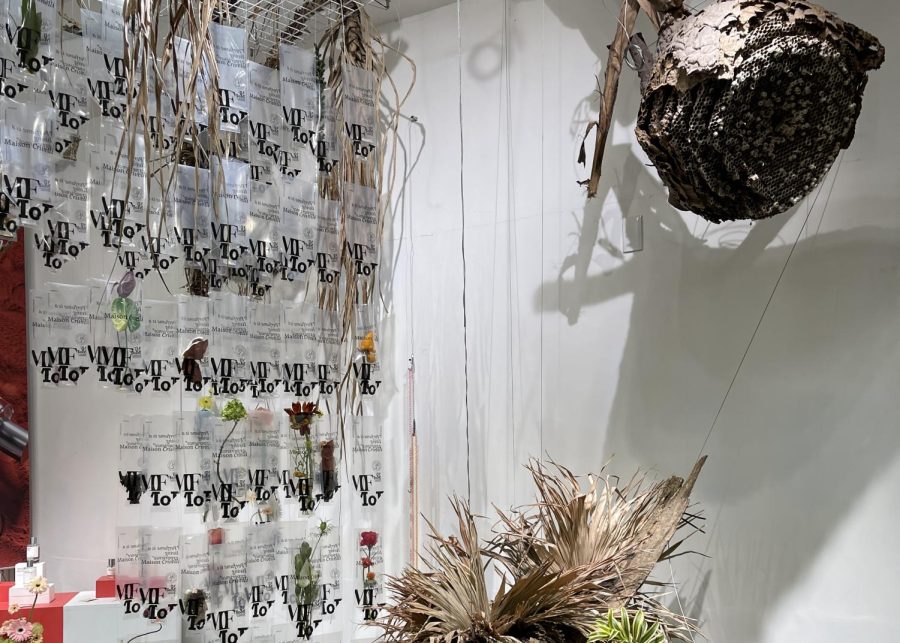From the moment I watched the trailer for “Parasite”, I was hooked. It was one of those trailers that gave away just enough for you to get the film’s mood without giving too much away about the plot. The first few seconds of the trailer were enough for me to realize that this was unlike anything I had ever watched and would ever watch again.
Recently, “Parasite” won the Palme d’Or prize, the highest prize awarded at the Cannes Film Festival, making director Bong Joon-ho the first Korean director to ever win the Palme d’Or at the festival. After watching the film myself, the prize was well deserved and the trailer lived up to its expectations.
The film follows Ki-taek (Song Kang-ho), a shiftless, unemployed man who lives in a chaotic and squalid basement with his wife, Chung-sook, his smart yet cynical twenty something daughter, Ki-jung (played by Park So-dam), and son, Ki-woo (played by Choi Woo-sik). They are all out of work and out of cash. Then Ki-woo gets a stroke of fortune: an old school-friend helps him get a lucrative tutoring job.
With a fake college diploma created by Ki-jung, he shows up at the fabulously lavish home of the Park family, wealthy entrepreneur Mr. Park (played by Lee Sun-kyun), his delicate wife, Yeon-kyo (played by Cho Yeo-jeong), their teen daughter, Da-hye (played by Jung Ziso) and her younger brother, Da-song (played by Jung Hyeon-jun).
Although the premise for the movie is simple, it is far from predictable. “Parasite” is one of those movies that you really can not put labels on. In some ways, “Parasite” is a critique of modern capitalism. Ki-taek’s family and their grey lifestyle is juxtaposed with the sleek and modern lives of the Park family. The viewer goes from watching the Park family housekeeper cutting up fresh fruit for the Park children in a mansion to Ki-taek’s family struggling to even find enough bars of Wifi to send a text message.
This relationship is made most apparent during a scene in the film where Ki-taek’s family gets caught in a rainstorm while going back to their apartment. The Park family is seen in their large house, barely giving a second thought to the rain. In fact, the youngest child, Da-song, has the luxury to sleep outside in the rainstorm while a water-proof teepee protected him overhead. Meanwhile, Ki-taek’s family house is flooded and most of their possessions have been submerged in water. As Ki-woo and his father frantically try to salvage their possessions, Ki-jung sits on an overflowed toilet seat while smoking a cigarette in defeat.
With these sequence of scenes alone, director Joon-ho criticizes of class inequality. The fact that Ki-taek’s neighborhood lacked the proper plumbing to drain the rain water suggests a lack of attention given to poorer neighborhoods where governments do not devote as many resources to. When this image is juxtaposed to the calm in the Park household, it acts as a powerful commentary on the two different worlds that the poor and rich must live in and how wealth inequality is exacerbated by seemingly mundane phenomenon like a rainstorm.
Although the film can be interpreted in this way as an insightful social commentary, “Parasite” simultaneously presents a comedic take on the same heavy subject. The first half of the movie where Ki-taek’s family plans their strategy to benefit off of Ki-woo’s job opportunity, is filled with light hearted jokes that play off the Yeon-kyo’s gullibility and the absurdity of the entire situation.
But as soon as you think “Parasite” is one thing, it immediately turns into something else. As viewers will realize, the movie goes from being a light hearted comedy to a narrative on societal inequality, to a darker thriller that complicates the plot further. This movie was one of the best and most memorable films I had the pleasure of watching this year and I would strongly recommend it.


![Oppenheimer is based on the real life events of the Manhattan Project. [PHOTO COURTESY OF UNIVERSAL PICTURES]](https://blueandgoldonline.org/wp-content/uploads/2023/12/opp-1200x632.jpeg)
![Barbie travels to the real world. [Photo courtesy of Warner Bros. Pictures]](https://blueandgoldonline.org/wp-content/uploads/2023/12/barbie.jpg)
![Ant-Man and the Wasp: Quantumania’s movie poster. [Photo courtesy of Marvel Studios]](https://blueandgoldonline.org/wp-content/uploads/2023/05/3A577986-AF30-4231-AABF-398C630CE8EC-900x506.jpeg)
![[PHOTO COURTESY OF MARVEL STUDIOS]](https://blueandgoldonline.org/wp-content/uploads/2023/01/wakandiiedie-900x506.jpg)
![[PHOTO COURTESY OF LEGENDARY PICTURES]](https://blueandgoldonline.org/wp-content/uploads/2022/12/2.webp)
![[PHOTOS COURTESY OF 21 LAPS ENTERTAINMENT, SKYDANCE MEDIA, RHODE ISLAND AVE. PRODUCTIONS, MARVEL STUDIOS.]](https://blueandgoldonline.org/wp-content/uploads/2022/10/386B5910-2499-4B53-99B5-041C49C16246-min-900x450.png)
![NewJeans releases their new EP. [PHOTO COURTESY OF NEWJEANS KR]](https://blueandgoldonline.org/wp-content/uploads/2023/12/nj-1200x800.jpeg)
![[PHOTO COURTESY OF 88RISING WARNER]](https://blueandgoldonline.org/wp-content/uploads/2023/01/IMG_2922-900x900.jpg)
![[PHOTO COURTESY OF REPUBLIC RECORDS]](https://blueandgoldonline.org/wp-content/uploads/2022/12/midnights-cooo.jpg)
![[COURTESY OF LITTLE, BROWN AND COMPANY]](https://blueandgoldonline.org/wp-content/uploads/2022/09/Circe-Photo-include-photo-credits-courtesy-of-the-publishing-house--558x900.webp)

![Turning Red embraces the chaos of adolescence and celebrates teenage girlhood. [PHOTO COURTESY OF GLOBAL TIMES]](https://blueandgoldonline.org/wp-content/uploads/2022/05/63253cf6-de43-4beb-9603-56cbe6896343-900x507.jpg)